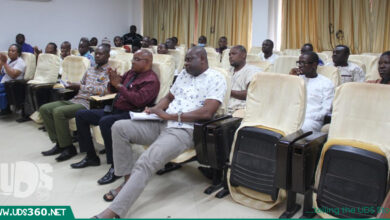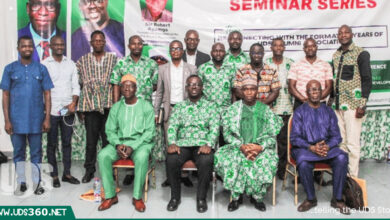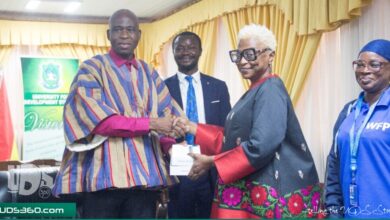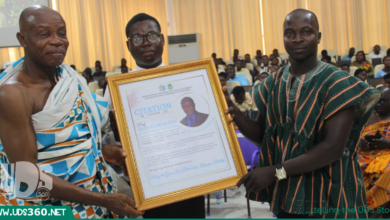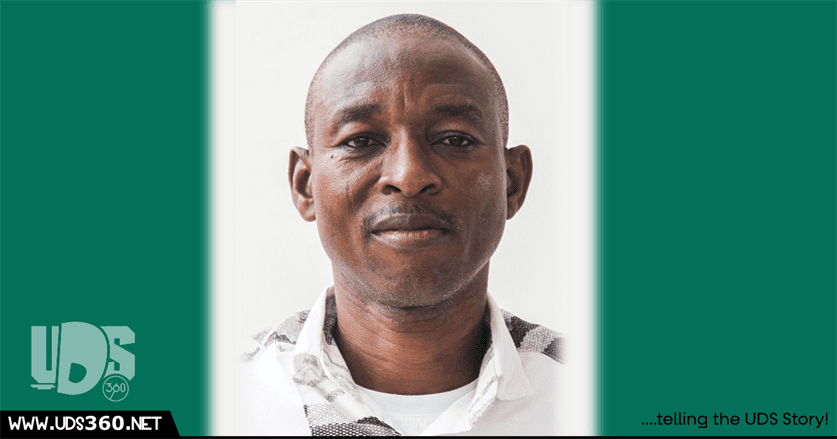
Meet The Foundation Director of WACSIR – UDS
- The fooundation director of WACSIR-UDS, Prof. Abukari Alhassan is a statistician with over 15 years of experience in higher education who specializes in applied statistics, theoretical statistics, and biometrics.
- Below is his story as published on uds.edu.gh with a few edits.
Read
Prof. Abukari Alhassan is a statistician with research interest in Applied statistics, theoretical statistics and Biometrics with over 15 years of teaching and research in higher education.
He received his PhD in Statistics from the University for Development Studies (UDS) in Ghana in 2015. In 2010 and 2006, he obtained his MSc. in Applied Statistics and BSc. in Statistics respectively from UDS and the University of Cape Coast.
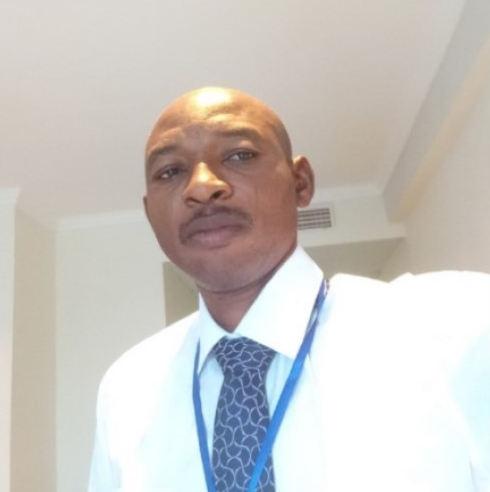
He started his career as a teaching assistant in Tamale Polytechnic in 1999 having completed his Higher National Diploma (HND) in Statistics from then Tamale Polytechnic. In 2000, he was employed as an assistant instructor in the then Polytechnic and subsequently rose to the rank of a lecturer in 2010. At the Polytechnic, he served at various committees and was later appointed as the Non-Resident Tutor and later joined Wisconsin International University College, Accra and UDS as a lecturer in 2010 and 2013 respectively.
He is currently an Associate Professor of Statistics and the Director for the West African Center for Shea Innovation and Research (WACSIR) in UDS. He has served UDS in a number of capacities including the Head of Department of Statistics, Post Graduate Coordinator, Faculty TTFPP coordinator, Faculty Industrial Attachment coordinator and has also served on a number of Boards and Committees in UDS. He played a leading role in redeveloping the BSc. Statistics programme in the Faculty of Physical Sciences. He has trained several undergraduate and postgraduate students and supervised many research theses.
Prof. Abukari has magnificent people management skills, and a range of collaborations with other researchers and organizations both local and international. He is the founder and coordinator of the UDS – Laboratory for Interdisciplinary Statistical Analysis (UDS-LISA) and a member of the LISA 2020 Network of statistical laboratories in developing countries with headquarters at the University of Colorado Boulder.
As part of his community services, he has coordinated a number of national projects/summits including the National Policy Summit held in Tamale in September 2018 to discuss and disseminate Government flagship programmes.
He has also served in numerous national and regional technical teams/committees including the Covid 19 pandemic team in the Ghana Academy of Arts and Sciences in May 2020, team member for the review of GLSSR6 and other data sources for the development of M&E frame work for the Northern Ecological Zone. Panelist/Speaker at the 5th National Policy Summit in December 2018.
He has also managed some research projects including Consulting as head of Field Operations and Communication for the Ghana National Household Registration in the North East Region of Ghana. A World Bank and The Ministry of Gender, Children and Social Protection project in June 2020 to create a data base on poor and vulnerable persons in the three Northern Regions.
Consulting as Survey Lead Member for Training Needs and Diagnostic Survey Among Institutions of Higher Learning and other Stakeholders in the West African Drylands in August 2016. Project undertaken by the Center for Dryland Agriculture of Bayero University, Kano, Nigeria to identify the type of human resources and skills required by diverse agricultural enterprises, institutions and stakeholders and the requisite training that will produce such human resource and skills.
Consulting as Data Analyst for Resettlement Action Plan (RAP) for the Construction of GRIDCo’s 330 KV Kumasi-Bolgatanga Transmission Line Project in February 2015 to provide leadership for farm parcel survey, inventory/valuation of assets, and determining resettlement measures.
Consulting as Data Analyst for Private Sector Participation in Savannah Accelerated Development Authority (SADA) Business and Investment Forum (SABIF) in March 2015 to design data collection modules and provide general leadership in the collection and management of the data.
Prof. Abukari has also attended numerous international conferences and he is credited with 27 peer reviewed publications. At the private level, he is an expert in Data Management and Training, including the design and development of data modules for Social Performance components of development projects essentially, on socioeconomics baselines, asset inventory and compensation management, resettlement action plan (RAP), and other social impact assessment and management measures.
His research area includes Disease Modeling, Probability and Stochastic Process, Multivariate Data Analysis, Longitudinal Data Analysis, Regression Analysis and Statistical Methods/Inferential Procedures.
He is a member and the Executive Secretary for Africa Region of the Sub-Saharan African Network (SUSAN) of the International Biometry Society (IBS).
He is a Muslim and happily married with children.
ABOUT THE WEST AFRICAN CENTRE FOR SHEA INNOVATION AND RESEARCH (WACSIR)
The West African Centre for Shea Innovation and Research (WACSIR) is a Centre of excellence at the University for Development Studies, Tamale, Ghana. The Centre is located on the Nyankpala Campus. The activities of the Centre revolve around conducting cutting-edge and evidence-based research to enhance knowledge and influence policy at the local, national and international levels in the area of shea. With this, it is expected that effective policies will be implemented across shea dominated West African countries to boost local economy, particularly to empower women economically and to enhance macroeconomic balance through foreign exchange earnings. This is premised on the potentials that shea promises for the West African sub region, especially, to women and the youth.
The Center’s mandate is to: conduct evidence-based shea innovation and policy improvement research, improve the human resource capacity of institutions in shea innovation and value chain research within and outside the University, facilitate and coordinate support for research funding, manage the implementation and execution of grants in the area of shea innovation and value chain research, create a network and platform for broader interactions among agricultural researchers, policymakers, and all other relevant actors in shea industry for policy advocacy.
WACSIR also seeks to improve the business incubation and innovations in the industry (e.g., reduction of shea maturity and fruiting period, improve shea collections and butter processing) to increase income of the rural households.
Key thematic areas include but not limited to:
- Marketing: Fair trade, Entrepreneurship and Finance;
- Waste management: Innovation, environment and climate change;
- Policy issues: Advocacy and sustainable industry;
- Agronomy: the omics of the shea tree (Vitellaria);
- Governance: Institutions, Gender and Equity
The Centre will communicate its findings through conferences, seminars and publications in reputable journals for academic audience. For non-academic audiences and policy makers, the Centre will publish policy briefs, newsletters and a biennial technical report of the shea in Africa
Mission
The Centre’s mission is to promote and support sustainable innovations in the shea sector through evidence-based research and policy advocacy in order to improve the livelihoods of stakeholders.
Departments/Units of WACSIR
The Centre has three units. These are
- Shea Breeding and Seedling Production Unit (SBSPI) Unit.
- Shea Policy Advocacy and Extension (APAE) Unit.
- Shea Value Chain Commercialization (SVCC) Unit.
GOAL AND OBJECTIVES OF WACSIR
The goal of WACSIR is to improve the benefits from the shea value chain to all actors globally.
Specific Objectives
The specific objectives of WACSIR are to:
- collect, plant and maintain a museum of different varieties of shea genetic resources
- build the capacity of plant breeders to develop improved shea varieties
- conduct evidence-based shea innovation and policy improvement research
- improve the human resource capacity of institutions in shea innovation and value chain research within and outside the University
- facilitate and coordinate support for research funding, management of the implementation and execution of grants in the area of shea innovation and value chain research
- create a network and platform for broader interactions among agricultural researchers, policymakers, and all other relevant actors in shea industry for policy advocacy.
Operational Activities and Strategies
The activities of the Centre include the following.
- Research and Publications
The WACSIR will use multidisciplinary approach to conduct cutting-edge research and publish the findings in reputable journals for academic audience. For non-academic audiences and policy makers, the Centre will publish policy briefs, newsletters. This will be done through collaborative research will all the industry players both locally and internationally. The Centre will also establish a journal of tree crops. - Training and Teaching
WACSIR will organise regular capacity building trainings and workshops for shea value chain actors. Training needs will be identified through stakeholder engagements in order to develop a strategic approach to deal with such needs. With this, the Centre will be open to accepting adjunct or visiting professors or students for capacity building. We will open to collaborate with departments and faculties within and outside UDS to train postgraduate students as well as staff of any interested agencies in shea knowledge for mutual benefits. - Agricultural Extension, Outreach and Policy Advocacy
This will be achieved through organisation of conferences, seminars, field days, and study tours for shea value chain stakeholders to help them be abreast with the Centre’s different research activities. A biennial technical report of the shea in Africa will be published. Strong policy advocacy forum will be organised annually





